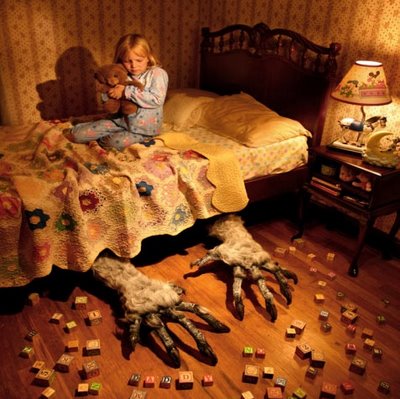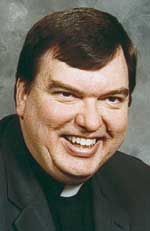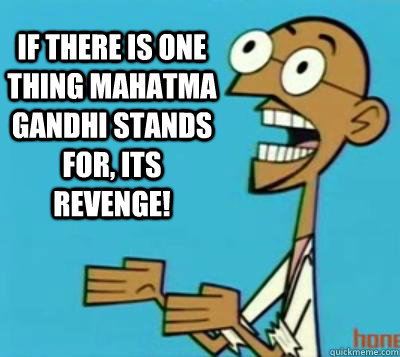When personal tragedies happen, why do you lose faith in God? You know that tragedies happen all over the world, every day. You hear about them on the news, you read about them in books, in newspapers, you are attuned to the fact that all over the world, children are dying. Your faith in God remains unshaken. So why is your faith in God crumbling when it is children who live close to you?
The weight of the shootings in Connecticut is heavy for us right now, because this is close to home.
But let's not forget that there are murders all over the world every day. For example did you hear about this story? It happened earlier this month. 29 Syrian schoolchildren and their teacher were killed when a mortar strike hit their classroom. None of us batted an eye. None of us said 'how terrible, those poor Syrian children.' None of us noticed. Not really. They're children a long long way away. We sort of say 'how sad' when we hear about it, but nobody posts statuses about how they're going to hug their own children a little closer after they heard about that Syrian elementary school.
Part of the reason that we're so devastated by this news is that it hits us close to where we live, and it calls into question the foundations of our lives. It calls into question where we are safe, where we can feel safe, all that. What do we base our safety on? And more importantly, where are the monsters?
Where are the monsters? The old maps used to have dragons on them where the civilized explored world ran out. When you'd draw a map up, where the end of the world was, as far as your people had explored, then past that was where the dragons were. Well, that's how we still feel about the world. There aren't supposed to be dragons or monsters in Muncie Indiana, Poughkeepsie NY, or Winnipeg MB. The monsters are supposed to be confined to the far edge of the map, where they won't bother anybody we like.
Well, it's a cute idea, and one that lets us ignore when monsters roar somewhere far far away, at the edge of our maps, in countries we can't pronounce, and that's where the monsters are. Okay, simple enough. But how do we feel when someone from this part of the world suddenly becomes a monster. Someone like us, with a name we could pronounce, with a face that looks like he could live here, what do we do with that?
Well, as much as we may want to believe that the monsters are at the far far edge of the map, they're not. I mean they are, but they're very much here, too. We just forget about them. I talked about this at length on Sunday, but I'd like to mention it again. Remember when you were a child, and you were terrified of the monster under the bed? Remember when it was bedtime, and you got your parents to look under your bed for you, and in your closet? Remember when you got your parents to shuffle all over your room looking for non-existent monsters? Do you ever remember them finding any? Of course you don't! Your parents never found any monsters because they spent an entire evening looking in the wrong places.
If you're familiar with the simpsons, I'd like to spin you a yarn. Every year, they have a halloween episode, which is 'scary.' That is, it's totally played for laughs, of course. And you're not supposed to be scared by what you see or hear, because it's supposed to be funny. But there is one episode of the Treehouse of Horror series that has a line that chilled me then, and it chills me now. It sort of comes out of the blue in a comedy series, an animated series, which never really seeks to terrify. But this line did. And it still does.
 It all happens during the episode "Hungry are the Damned," in which the Simpson family are abducted by aliens whilst enjoying a family barbecue. And they are told by their alien captors that they will be cherished, worshiped, allowed to do as they please. And they are given just a whole tonne of food. Well, whilst they are on board the flying saucer, Lisa happens upon the alien cookbook. And she is shocked to see that the title is 'How to Cook Humans.' She runs, gets her family, and they confront the aliens. Then follows an hilarious sequence in which alternating parties blow the space dust off of the cover of the book, changing it from "How to Cook Humans' to 'How to Cook for Humans' to 'How to Cook Forty Humans' to 'How to Cook for Forty Humans.' The final upshot is that the Aliens were actually nice, seeking to do right by the Simpsons, but because of their untrusting nature, they are kicked off the saucer, and put back at their house. As the flying saucer flies away over the rooftops, Marge turns to Lisa and says
It all happens during the episode "Hungry are the Damned," in which the Simpson family are abducted by aliens whilst enjoying a family barbecue. And they are told by their alien captors that they will be cherished, worshiped, allowed to do as they please. And they are given just a whole tonne of food. Well, whilst they are on board the flying saucer, Lisa happens upon the alien cookbook. And she is shocked to see that the title is 'How to Cook Humans.' She runs, gets her family, and they confront the aliens. Then follows an hilarious sequence in which alternating parties blow the space dust off of the cover of the book, changing it from "How to Cook Humans' to 'How to Cook for Humans' to 'How to Cook Forty Humans' to 'How to Cook for Forty Humans.' The final upshot is that the Aliens were actually nice, seeking to do right by the Simpsons, but because of their untrusting nature, they are kicked off the saucer, and put back at their house. As the flying saucer flies away over the rooftops, Marge turns to Lisa and says"You see, Lisa? This is what we mean when we say that you're too smart for your own good."
And Lisa, staring up at the disappearing saucer says:
"There were monsters on that ship, and truly we were they."
That line still chills me. I still get the ol' goosebumps even writing it down. Why? Because it tells me what I don't want to hear. I've spent a lifetime looking for monsters under beds, in closets, in attics, in the forests and dark bowers of man's domains. It started with me looking for monsters under my bed and in my closet, and as I grew up, I started to look for monsters in Syria, in Columbine, in Sandy Hook, in Virginia Tech, so that I could console myself that the monsters were over there. Somewhere, anywhere else. But gradually, ever so gradually, the truth of what Lisa said dawned on me. I've been looking for monsters in all the wrong places. I've been looking for monsters under the bed my whole life, and never bothered to look in the one place that the monster was actually hiding.
In bed. With me.
If I would have taken the time to look, I would have found all the monsters I could possibly hope to ever find. Truly there was a monster in my house. And he was in me.
I was the monster I should have been worried about. And more importantly, I was the only monster that I could do anything about. The fictional monsters, the faraway monsters, all they'd do was to absolve me of my Christian responsibility to confront the evil and pain and disaster in the world directly caused by me. Because you know what? I can think all day about what someone in Washington or Basra or Hartford should do to make sure that people don't murder each other. I can think all day about what hospitals should be opened in places I'll never visit, and what metal detectors will be installed in schools I'll never go to.
Or, I can do the much more difficult job of looking for the monsters not at the edge of the map, not where I happen to know that they aren't, but where I happen to know that they are. In me. In my heart.
We're at the time of Advent, where it talks a lot about preparing our hearts for the coming of the Lord. And John the Baptist talks a lot about repentance, about making straight the way of the Lord. And what on earth does that look like? Well, it has nothing to do with pointing out everyone else's problems ,and feeling comfortable doing it, nah, it has to do with the dragons and monsters that are in my own life. The Christian ethos says that everyone's sin is their business, and that means that your sin is yours. It's tough medicine, to be sure.
I can't control what happens in Washington. I can't control what happens in Hartford, or in Basra, or in Tehran, or in Beslan, or any of these other places. I'm lucky if I can control, for just a moment, the monster in the mirror at 3825 Hillsdale St.
I hope everyone can find some degree of peace over Christmas this year. I hope everyone can find some space in which they are confident in who they are, in what they believe, and in a loving God who allows us to be free, with real consequences, but at the same time promises that like in good horror movies, the monsters don't win. The monsters get defeated. And the greatest of all monsters, death, is no exception. That's what Christmas is all about, you know, that days and weeks like these don't win. They aren't victorious.
I'm going to leave us all with the verse from 'for all the saints' that always gives me the chokies. Happy Christmas everyone. The light shines in the darkness, but the darkness has not overcome it. It's dark right now, but Christ the light has come.





























